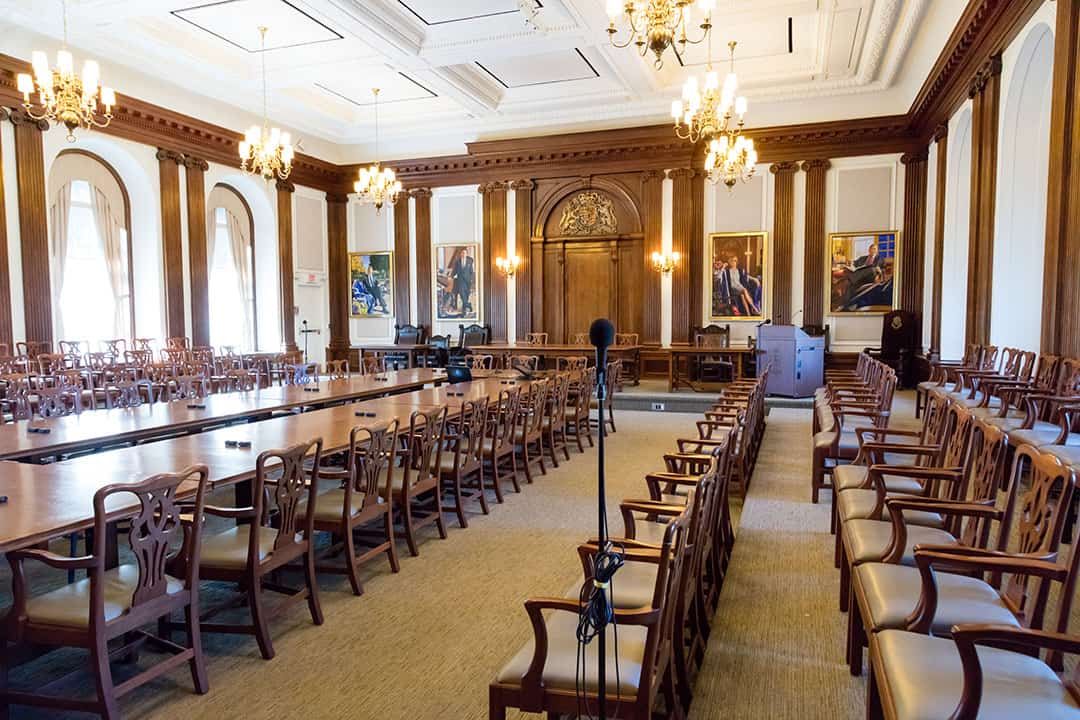Governing Council’s Academic Board has approved the final draft of the controversial university-mandated leave of absence policy, and it has forwarded its recommendation to the Executive Committee. Governing Council could approve the policy as early as February 14. It would be effective February 15.
The policy would enable the university to place students on a non-punitive leave of absence due to mental health that either poses a dangerous, physical risk to themselves or others, or negatively impacts their studies.
Vice-Provost Students Sandy Welsh said that the new draft reflects the input the administration received from the community. “It does give us a solid framework for supporting students facing mental health challenges, particularly in the rare cases where they may be a harm to themselves or others.”
The final draft of the policy includes few changes suggested by student groups consulted in the months since the proposal was first announced.
One of the chief recommendations was requiring the presence of a medical professional during the process, but the suggestion was excluded from the final draft. Welsh said this is because the administration still wants the policy to be “inclusive, rather than exclusive,” giving the following example: if a student were to seek help from a medical specialist that was not on the team deciding whether to implement a mandatory leave, the university would invite that specialist to include their input — with the student’s consent.
Of 14 concerns with the policy raised by the University of Toronto Student Union (UTSU), three were addressed by the university.
One of the concerns raised by student groups was the threshold for intervention, which would allow a student to be placed on leave if their studies were negatively impacted by their mental health. The final draft adds the word “essential,” and it now states that intervention can occur when a student “is unable to engage in the essential activities required to pursue an education.” UTSU’s President, Matthias Memmel, said that this “is still too broad.”
Governing Council delayed the vote on the policy late last year amid concerns from student groups and campus organizations that it did not accommodate enough feedback from the university community.
Since the release of the final policy, student groups have again signalled that they do not intend to back it. According to Memmel’s executive report, the union “can’t in good conscience support the policy.” He continued, “I and VP University Affairs [Adrian Huntelar] will be speaking in opposition at the [University Affairs Board] meeting.” The University Affairs Board will vote on the policy January 30.
An informal student group has formed to fight for changes to the policy. Members include former UTSU Vice-President External Lucinda Qu, former University College Director Aidan Swirsky, and Huntelar, who told The Varsity that they urged all voting members in the governance process to strike it down and “to reconsider how the University can best create a learning and working environment that actually includes and accommodates students and faculty with mental health issues, not one [that] pushes them out.”
“The University,” wrote the group in an email, “has demonstrated that it would rather create additional policies which might exacerbate students’ mental health and disability-related issues rather than address the ways in which its administration already worsens – and at times creates – those same issues.”
Pending recommendation by the University Affairs Board, the policy will go in front of the Executive Committee for endorsement and forwarding to Governing Council.


